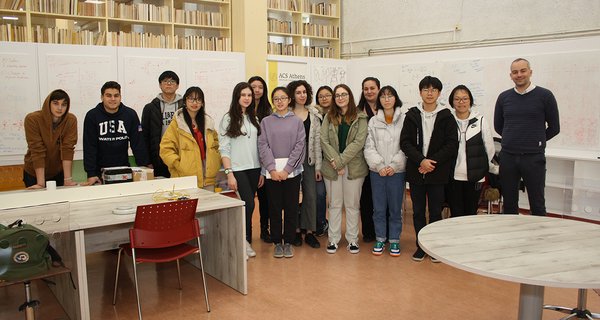spACS
ACS Athens Academy students are involved in two S.T.E.A.M. (Science, Technology, Engineering, Art, and Mathematics) experiments, spACS 1 and spACS 2, to be conducted at 100 km altitude under microgravity conditions inside Blue Origin’s “New Shepard” reusable rocket. Jeff Bezzos’ Blue Origin is a world-class aerospace company that is pioneering rocket reusability and space flight and paves the way for space colonization. The New Shepard vertical takeoff and vertical landing vehicle is capable of carrying hundreds of pounds of payloads per flight and will ultimately carry up to six astronauts to altitudes beyond 100 kilometers, also known as the Karman Line, the internationally-recognized boundary of space. ACS Athens is among the first few non-US schools that have participated in Blue Origin’s flights.
ACS Athens students are designing, prototyping, and fine-tuning each scientific apparatus. Students are conducting scientific research and experiments, managing the program, and meeting tight deadlines and constraints. The scientific apparatus has to fit inside a 10cm x 10cm x 20cm container with a total maximum mass of 500g; the experiment has to be pre-programmed to run autonomously and the apparatus has to meet strict safety criteria. The above are evaluated by the Nanoracks space industry company.
The spACS 1 experiment, with the goal to investigate the viscosity of honey under microgravity conditions, has already been conducted into space on May 2, 2019.
The spACS 2 experiment, with the goal to investigate the behavior of petimezi foam and ouzo emulsification under microgravity conditions, was conducted on December 11 2019.
Both groups of students follow the same work breakdown structure consisting of the following teams:
- Research Team (literature research, experimental apparatus design, experiment conduction and data collection, data analysis and evaluation)
- Development Team (microcontrollers’ assembly, coding, mechanical and electrical engineering, 3D design), and
- Administration Team (articles, outreach initiatives).
Students meet regularly at the ACS Athens Incubator and make use of the Incubator and Academy Chemistry lab’s facilities and resources. Academy faculty and external collaborators/experts are engaged with both experiments.
spACS 1 and spACS 2 students’ work has been featured in the news (online magazines and TV), the press, and has been demonstrated in conferences, and the Athens Science festival.




